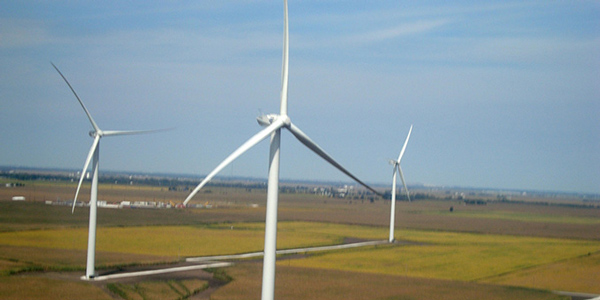By Amanda Durish Cook
MISO will resume discussion on possible cost recovery for participant-funded transmission projects under 345 kV after two wind industry organizations called on a stakeholder committee to revisit the issue.
The MISO Advisory Committee will take up the subject at a Sept. 20 meeting during Board of Directors week in St. Paul, Minn., where stakeholder sectors can offer opinions on the matter.
Wind developer EDF Renewable Energy and nonprofit Wind on the Wires approached the Advisory Committee during an Aug. 23 conference call to once again appeal for cost recovery on customer-funded transmission upgrades under a proposed “non-[MISO Transmission Expansion Plan] upgrades” category. The RTO’s Steering Committee last month declined to rehear the issue after determining it had been fully considered in the stakeholder process even if supporters of the change were disappointed with the outcome. Some stakeholders pointed out that customers accept the risks of funding their own upgrades performed outside the MTEP process, and an after-the-fact cost allocation would be too complex to introduce.
EDF and Wind on the Wires faced two options after the rejection: either approach the Advisory Committee or file a FERC complaint. (See MISO Rejects Cost Recovery for Customer-Funded Projects.)
“We don’t think the discussion was robust enough,” said Bruce Grabow, an attorney representing EDF.
Grabow said the discussion in the MISO Regional Expansion Criteria and Benefits Working Group (RECBWG) demonstrated a “fundamental misunderstanding of the need and request.” The group had failed to discuss the current “gap” in congestion management or why participant-funded upgrades should be excluded from cost allocation, he said. There had also been no discussion of the possible unreasonableness of the status quo and no “exploration of how the proposal could work or be adjusted to address stakeholder concerns.”
Grabow argued that there should be a “simple” one-time return of installed costs imposed on new interconnection requests. MISO’s status quo of leaving the cost of customer-funded upgrades solely to the customer is “proving to be an insufficient means,” as no such projects were brought forward in MTEPs 14, 15 or 16 despite the need for sub-345-kV projects that relieve congestion, he said.
“One of the biggest challenges facing wind generators today is congestion in various areas that cause curtailment,” Wind on the Wires Executive Director Beth Soholt told Advisory Committee members. She said that customer-funded transmission upgrades meant to relieve congestion often become heavily trafficked with non-firm use themselves, diminishing the benefit that the project financier envisioned.
Grabow rebutted the RECBWG’s opinion that allowing cost recovery on customer-funded upgrades would equate to buyer’s remorse.
“If new customers are coming in and couldn’t get transmission service but for the upgrade, it’s not buyer’s remorse. It was done for a particular reason: to relieve congestion,” he said.
Grabow also argued that financial transmission rights are not adequate to ensure a fair payout.
“If new customers are relying on that transmission, they should pay their fair share,” he said.





